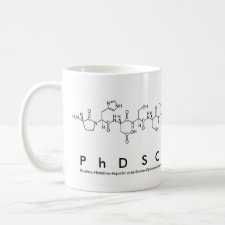
Authors: Prasad BB, Prasad A, Tiwari MP
Article Title: Quantum dots-multiwalled carbon nanotubes nanoconjugate-modified pencil graphite electrode for ultratrace analysis of hemoglobin in dilute human blood samples.
Publication date: 2013
Journal: Talanta
Volume: 109
Page numbers: 52-60.
DOI: 10.1016/j.talanta.2013.01.051
Alternative URL: http://www.sciencedirect.com/science/article/pii/S0039914013000611
Abstract: A novel molecularly imprinted polymer, selective for human hemoglobin, was immobilized on the surface of CdS quantum dots-multiwalled carbon nanotubes nanoconjugate-modified pencil graphite electrode. The fabricated sensor was found to be water-compatible and biologically benign, since the molecular imprinting was exclusively carried out in water, without any protein denaturation and electrode fouling. Notably, the pencil graphite electrode modified with merely a nanoconjugate matrix might involve the onset possibilities of electrode passivation and protein denaturation. However, a polymer coating onto the nanoconjugate obviated such obstacle while evaluating human hemoglobin in an aqueous environment (pH 4.2). The quantification of the hemoglobin in the dilute whole blood samples varied in the linear range 27.8-444.0 ng mL-1; and the detection limit was obtained as 6.73 ng mL-1 (S/N=3), without any cross-reactivity and false-positives. The proposed sensor can be used as a cost effective sensor for hemoglobin, in clinical settings
Template and target information: protein, human hemoglobin
Author keywords: Quantum dots, QDs-MWCNTs nanoconjugate, hemoglobin, molecularly imprinted polymer, Real sample analysis



Join the Society for Molecular Imprinting

New items RSS feed
Sign-up for e-mail updates:
Choose between receiving an occasional newsletter or more frequent e-mail alerts.
Click here to go to the sign-up page.
Is your name elemental or peptidic? Enter your name and find out by clicking either of the buttons below!
Other products you may like:
 MIPdatabase
MIPdatabase









